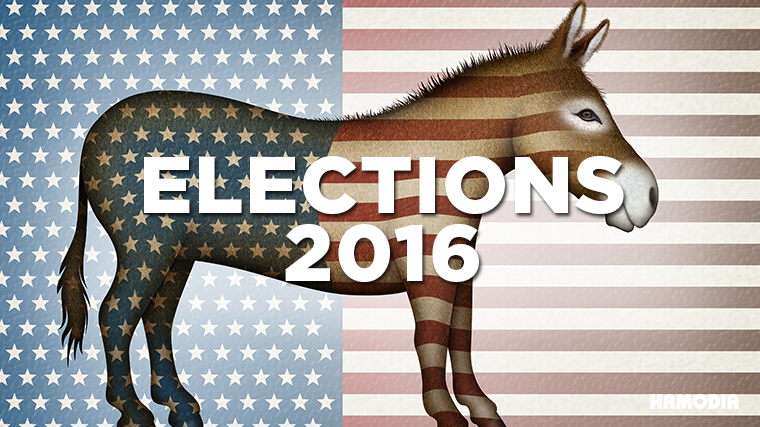Things to Watch for in Sunday’s Democrats’ Debate

The Democratic presidential debate Sunday night may be the liveliest one yet.
In the final debate before voting begins in the Democratic contest, Hillary Clinton will be more aggressive in her attacks on Bernie Sanders after the former secretary of State watched her hefty lead in early nominating states evaporate.
Sanders, an independent senator from Vermont, has slowed Clinton’s momentum and scored some key endorsements, including one this week from the liberal group Moveon.org, which boasts millions of members.
The two-hour debate at the Gaillard Center in Charleston, S.C., starts at 9 p.m. EST. It will feature Clinton and Sanders as well as former Maryland Gov. Martin O’Malley.
Here are things to watch for.
Guns
This will be the first debate since President Barack Obama announced his executive actions on guns, a new opening for Clinton to slam Sanders again on the issue.
Clinton lambastes Sanders over his record on gun control — one area where he may be vulnerable with Democrats — especially for voting to shield gun manufacturers from lawsuits.
Sanders notes that he has voted to close the so-called gun show loophole and tighten background checks but stands by his vote on gun manufacturers.
Both say they support Obama’s actions expanding the number of background checks before gun purchases by requiring more sellers — including those at stores, gun shows and on the Internet — to get licenses.
Clinton’s Strategy
Clinton enters the fourth Democratic debate looking to mimic the first.
She had a standout performance at the first debate but stumbled some in the second and third debates by invoking the Sept. 11, 2001, terrorist attacks to explain her relationship with Wall Street and saying the U.S. is “finally where we need to be” on fighting the Islamic State, referring to arming rebels in Syria. Her momentum has stalled.
Clinton will be prepared on the issues, of course. She also needs to show she is above the fray by not getting flustered by tough questions or attacks on her record.
Race Relations
In the city where a white man killed nine people at one of the nation’s oldest black churches and in a state where nearly a third of the population is black, relations between blacks and whites are an issue.
Clinton and Sanders have talked about their roles in the civil rights movement and policies that could improve relations between black residents and white police officers as they compete for the black vote.
The former secretary of State has a big lead over Sanders with black voters in a primary where minority voters, specifically blacks, will be a crucial bloc in a series of states starting with South Carolina. More than half of the primary voters in South Carolina in 2008 were black.
Gilda Cobb Hunter, a South Carolina legislator who’s a member of the Democratic National Committee, said she expected Clinton to win South Carolina but that Sanders had quietly made inroads in the state with liberal and labor groups.
Health care cost: In recent days, Clinton has stepped up criticism of Sanders for failing to say how he would pay for a health care plan that some have estimated to cost $15 trillion.
Clinton’s aides said it was “simply not possible” to implement Sanders’ plan — which they say would dismantle Medicare, Medicaid and the Affordable Care Act — without raising taxes on the middle class. Clinton has pledged not to raise taxes on the middle class.
“He wants to roll Medicare, Medicaid, Affordable Care Act and private health insurance into a national system and turn it over to the states to administer,” Clinton said at a campaign event Tuesday in Iowa. “Now, if that is the revolution he is talking about, I am worried, folks.”
It wasn’t that long ago that Clinton backed a universal health care plan similar to the one Sanders supports now. In fact, the first time Clinton ran for president, in 2008, Obama attacked her for supporting a similar plan.
It’s unclear whether Clinton’s attack will hurt Sanders. Many Democratic primary voters support universal health care even if it means their taxes will rise.
To Read The Full Story
Are you already a subscriber?
Click "Sign In" to log in!

Become a Web Subscriber
Click “Subscribe” below to begin the process of becoming a new subscriber.

Become a Print + Web Subscriber
Click “Subscribe” below to begin the process of becoming a new subscriber.

Renew Print + Web Subscription
Click “Renew Subscription” below to begin the process of renewing your subscription.












